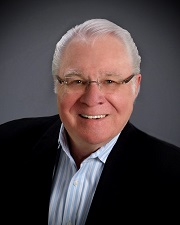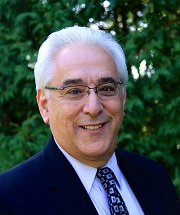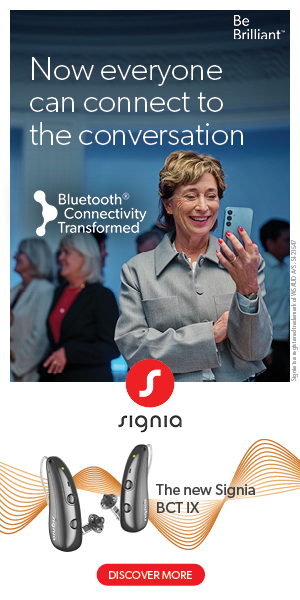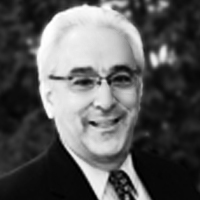From the Desk of Gus Mueller
 Have you noticed that every year there seems to be hundreds of new over-the-counter “supplements” introduced that are purported to take care of just about every malady or body imperfection you can think of? And of course, they have to have catchy names. According to the advertising, if you want to lose some weight, put Belly Blaster on your shopping list. Need to build muscle? You might want to try Full Combat. Having trouble in the bedroom? IntenseX just might be for you. And how about all these products: Ring Relief, Ring Stop, Ring Zen, Tinnifree, Tinnitivix and Quietus. You guessed it—all advertised to cure or reduce tinnitus. And there are about 50 more in this category. This would be humorous except for the fact that many of our patients are spending good money to obtain these supplements, with the belief (hope) that a good dosage of pills or powder will provide relief from their tinnitus. Unfortunately, there is little research evidence to suggest that this will happen. So are these patients just a little naive? Or, do they just have nowhere else to turn for help?
Have you noticed that every year there seems to be hundreds of new over-the-counter “supplements” introduced that are purported to take care of just about every malady or body imperfection you can think of? And of course, they have to have catchy names. According to the advertising, if you want to lose some weight, put Belly Blaster on your shopping list. Need to build muscle? You might want to try Full Combat. Having trouble in the bedroom? IntenseX just might be for you. And how about all these products: Ring Relief, Ring Stop, Ring Zen, Tinnifree, Tinnitivix and Quietus. You guessed it—all advertised to cure or reduce tinnitus. And there are about 50 more in this category. This would be humorous except for the fact that many of our patients are spending good money to obtain these supplements, with the belief (hope) that a good dosage of pills or powder will provide relief from their tinnitus. Unfortunately, there is little research evidence to suggest that this will happen. So are these patients just a little naive? Or, do they just have nowhere else to turn for help?

Gus Mueller
Our guest author at 20Q this month will give us a run down on the OTC tinnitus relief products available today, and the role of the audiologist when dealing with patients who may be considering this treatment strategy. Robert M. DiSogra, AuD, is owner of Audiology Associates of Freehold, PC, a private practice he has operated in Freehold, New Jersey since 1985. Dr. DiSogra also is Adjunct Lecturer at Salus University, where he has taught classes on Pharmacology and Ototoxicity for the past 15 years, and has been honored by being named Alumnus of the Year.
Some readers might recall when Bob burst on the national audiologic scene with his 1993 publication in Audiology Today entitled, The Side Effects of Drugs on Hearing, Auditory Perception and Other Related Symptoms. This quickly became the go-to article when questions about drug side effects arose. This first compendium was updated and expanded in Audiology Today in 2001, and again updated in 2008, when the American Academy of Audiology published a 42-page monograph on the topic written by Dr. Disogra, entitled Adverse Drug Reactions and Audiology Practice. This version included a listing of over 2000 drugs and 415 potential side effects. This is a must-have reference for any clinical audiologist.
Bob has lectured nationally and internationally on adverse drug reactions and patient management and has several publications on related topics. His latest book is an extensive review of over 50 over-the-counter tinnitus relief products, which can be obtained (free of charge) from Oaktree Products. We’re pleased that he agred to provide us with a review of this important topic here at 20Q. You can find additional resources on his office website, www.audiologyfreehold.com
Gus Mueller, PhD
Contributing Editor
April, 2015
To browse the complete collection of 20Q with Gus Mueller CEU articles, please visit www.audiologyonline.com/20Q
20Q: Dietary Supplements for Tinnitus - Really?
- Readers will be able to discuss dietary supplements marketed as a tinnitus relief/cure with their patients.
- Readers will be able to explain how supplements are categorized and the loopholes that enable them to be advertised and marketed without a solid research base.
- Readers will be able to list evidence-based treatment for tinnitus that can be recommended to patients.

Bob DiSogra
1. I recall seeing some of your other publications on adverse drug reactions, patient management and the Internet pharmacy. Now I see you’re researching non-prescription supplements for tinnitus. Why is that?
Over the years there has been a proliferation of advertisements for these products on television, radio, in newspapers, and, in particular, on the Internet. But the promise of an easy fix for tinnitus is a false one. A patient who self-medicates to manage his or her tinnitus symptoms, without consulting an audiologist or ENT physician, is making a big mistake.
2. I agree, but with just a few products that I know of, what can be so harmful?
Few? Hardly! In my research, I have identified over 50 products that claim to either temporarily or permanently relieve tinnitus. These products include herbal supplements, vitamins, and homeopathic remedies. All are available without a prescription.
3. There are really over 50 products? Now you have my attention!
The ingredients in OTC tinnitus relief products are often selected based on folklore, anecdotes or traditional Chinese medicine, and routinely contain ingredients that have not been scientifically-evaluated for their efficacy or safety, or have been shown to be no better than a placebo. An example of the latter is Ginkgo biloba. You have maybe heard anecdotal reports that this is helpful for treating tinnitus, but research from large, well-controlled, double-blind, placebo-controlled clinical studies clearly indicates that Ginkgo is no more effective in alleviating tinnitus symptoms than a placebo.
In one well-designed, double blind, placebo-controlled trial using Ginkgo biloba and postal questionnaires, 34 of 360 participants receiving active treatment reported that their tinnitus was less troublesome after 12 weeks. The most important finding was that 35 of 360 participants who took the placebo also reported the same improvement (Drew & Davies, 2001). In 2014, a tinnitus clinical practice guideline was issued by the American Academy of Otolaryngology – Head and Neck Surgery Foundation (AAO-HNSF). The panel of 23 authors included 3 audiologists. This panel recommended against Ginkgo biloba, melatonin, zinc, or other dietary supplements for treating patients with persistent, bothersome tinnitus due to methodological concerns with the research. In fact, the guideline states that due to herb-drug interaction, it may be wise for many people to avoid Ginkgo altogether including older adults, those with bleeding disorders, and those taking medications that inhibit clotting (which are likely many of our older patients).
When most patients sit down to their computer, however, they are more apt to go to WebMD than to PubMed. And what does WebMD say regarding the home treatment of tinnitus? “Try the herbal supplement ginkgo biloba. Some studies suggest that it may help relieve tinnitus, but other studies do not show a benefit. Further studies are needed to determine the best dosage.”
The last sentence alone suggests that there is a “best dosage.” My research suggests that 90% of the total number of ingredients in OTC tinnitus products have absolutely no peer-reviewed research to substantiate their use for tinnitus relief. Reported research on the remaining 10% of ingredients is often vague or outdated. Some companies promote data that is over 60 years old! Other companies even go so far as to suggest that the different ingredients in their product will treat different aspect of hearing and tinnitus. Here is an example from one company:
- Kali Sulphuricum HPUS 6x - Chirping, Crackling, Humming
- Salicylicum Acidum HPUS 6x/12x - Roaring, Ringing, Buzzing
- Silicea HPUS 13x- Discomfort
- Calcarea Sulphuricum HPUS 12x- Inner Ear Problems
- Chininum Sulphuricum HPUS 12x - Hardness of Hearing
- Thiosinaminum HPUS 6x/12x - Eardrum Problems
I’m afraid that some of our patients believe all this.
4. Okay, but who actually decides what ingredients go into these products?
Over the past year, I randomly contacted 25 of the companies via their “Contact Us” tab on their website and asked them that same question. Just two companies replied. One said, “We took the product off the market – it didn’t work” and the other reply was, “We’re too busy to answer your question.” So to answer your question, I have no idea!
5. I’m getting a little concerned now. It sounds like a no-man’s land out there! Where is the FDA in all this?
Some patients may assume that supplements are safe because no prescription is needed for their use. In truth, it is impossible to fully determine the safety of supplements because of very weak federal regulations. The U.S. Food and Drug Administration (FDA) and U.S. Federal Trade Commission (FTC) are responsible for ensuring that nutritional supplements are safe. The National Institutes of Health, Office of Dietary Supplements, provides general scientific guidance on these products. Nonetheless, manufacturer claims about the safety and efficacy of OTC supplements do not have to be proven because the FDA classifies dietary supplements as food, not as drugs. Consequently, OTC tinnitus-relief products do not go through the same rigorous scientific scrutiny as pharmaceutical drugs.
6. How does the public perceive all this?
A Harris Poll in 2003 found that 55% of just over 1000 respondents thought that the FDA had to approve supplements. Wrong! Consumers expect the FDA to have a say in what we consume. Consequently, some type of “approval” must be stated. However, as I mentioned, supplements are classified as food, thus, the manufacturer has to register the product with the FDA, but not declare efficacy.
7. There has to be some laws to protect consumers from this type of product?
Under the Dietary Supplement Health and Education Act of 1994 (DSHEA), supplement manufacturers themselves are responsible for ensuring the safety of their products, before they go to market. The FDA is responsible for taking action against any unsafe dietary supplement products only after consumer complaints are filed.
It’s very uncommon for the FDA to take action, although one recent exception was DMAA (1,3-dimethylamylamine). DMAA is an amphetamine derivative that has been widely used in sports supplements sold in the United States. DMAA is often touted as a “natural” stimulant, with many claimed functional uses including a body-building aid, an athletic performance enhancer, and a weight-loss aid. Although DMAA at one time was approved as a drug for nasal decongestion, no medical use of DMAA is recognized today. The FDA reported that it is not aware of any reliable science indicating that DMAA exists naturally in plants.
DMAA-containing dietary supplements are illegal and their marketing violates the law. Based on the scientific information reviewed by FDA, DMAA is not a dietary ingredient. FDA does not have any information to demonstrate that consuming DMAA is safe. This substance is known to narrow blood vessels and arteries, which can elevate blood pressure, and may lead to cardiovascular problems such as shortness of breath, arrhythmias, tightening in the chest, and heart attack, as well as seizures and other neurological and psychological conditions. More information can be found on the FDA website.
8. I thought you could only file a complaint with FDA if it involved a prescription drug?
No, if a patient has an adverse reaction to a supplement, the complaint filing process is the same for drug complaints: 1.800.MEDWATCH or online at www.fda.gov/Safety/MedWatch. However, the DSHEA includes a legal loophole that manufacturers can use to minimize their liability, in the form of a general disclaimer: “These statements have not been evaluated by the FDA. This product is not intended to diagnose, treat, cure or prevent any disease.” Every product I found used the DSHEA disclaimer. In effect, supplement manufacturers can put any number of ingredients into their product, without having to prove the actual benefits or safety.
9. So what you’re saying is that as long as the manufacture puts that disclaimer on the product, safety and efficacy do not have be proven?
Did I tell you that my mother’s Sunday Italian gravy can cure tinnitus and improve hearing! Honestly! Oh, did I also mention that that statement has not been evaluated by the FDA and that the product is not intended to diagnose, treat, cure or prevent any disease? Well, by stating just that, I am now in compliance with the FDA except for the fact that the ingredients that I say are in the gravy better be in the gravy.
10. Isn’t that taking it a bit too far?
Maybe, but seriously, when you have this ambiguity in the law, there is opportunity. Websites and advertisements for OTC products typically do not include citations to support the manufacturer’s miraculous claims. It is not unusual to read ambiguous statements, like “helps reduce ear noises” or “studies have shown a reduction of ringing in the ear.” The challenge is to find the actual “studies” being referenced. In many cases, the reported research was not published in a peer-reviewed journal and is fairly unreliable. I have yet to find an over-the-counter tinnitus-relief product that has been tested and verified in a double-blind, clinical study, using commonly-accepted clinical research methods.
11. You said that only 10% of the ingredients you identified had any peer-reviewed supporting research. So what are the other 90% of the contents supposed to do?
You saw my chart earlier of what one company claims they do. Most of the other ingredients are vitamins and minerals. For example, it’s not unusual to see a laundry list of the same vitamins you can take in a multi-vitamin supplement. So why add more? Your body will only accept what it needs and evacuate the rest. What I also did find was that many products contain ingredients (compounds and acids) that could, in fact, be potentially harmful to patients.
12. For example?
Here is just a partial summary:
- 19 products have ingredients identified as being potentially poisonous to humans.
- 25 products should be avoided by patients with cardiac conditions because they may affect blood pressure or may negatively interact with the frequently-prescribed anticoagulant drug warfarin.
- 22 products should not be used by pregnant women or nursing mothers—by the manufacturer’s own suggestion
- And here is the best one, eleven products contain quinine—which can cause tinnitus!
13. Talk about guaranteeing continued sales! So what do all these mostly bogus tinnitus treatments cost?
Patients can expect to pay upwards of $50.00 per bottle (a one month supply) for these supplements. That’s $600.00 a year, with absolutely no guarantee of effectiveness or safety.
14. That’s significant. But I’ve had some patients try this stuff and they swear by it.
True, a few patients anecdotally report improvement in their tinnitus after they start using the supplements, but it is likely that the perceived benefit is due to the placebo effect. If one of my patients tells me they are getting relief from an OTC tinnitus product my response is simple: “Congratulations! I’m glad you found some relief." I also advise them to speak with their physician or healthcare provider about supplements they may be taking to ensure there is no interaction with their medications, and to minimize the risk of other side effects. Because there is no scientific evidence for OTC tinnitus supplements, I’m skeptical that these products had any direct impact on the patient’s improvement. In addition to the placebo effect, I typically suspect some other variable was involved: stress reduction, diet, exercise, better sleep, etc.
Without being able to show efficacy across many patients in a controlled clinical trial, any reported tinnitus improvement from OTCs should be regarded as anecdotal, rather than definitive proof. Anecdotes are simply not reliable metrics upon which to base a professional recommendation for other patients struggling with tinnitus.
15. How else do you counsel your patients who have tried or want to try an OTC tinnitus relief supplement?
I tell them that I understand the allure of an easy, quick fix—the secret herb, oil, mineral or extract that will permanently solve your tinnitus. But unfortunately, this is a false promise. If there really was a true cure for tinnitus, I would venture to guess that it would be the lead story on the evening news. Adding to the problem is that many patients may be taking a pharmaceutical for another medical problem and tinnitus is a reported adverse event of that drug.
There are a few websites that can help here:
- www.rxlist and www.drugs.com each are commercial sites but with very good consumer information.
- www.fda.gov is the main site for drug information – but it can be tricky to navigate.
16. How do you handle this potential interaction in your office?
When we schedule a patient for testing we ask them to list all their prescription medications and why they are taking them. We then ask them how long they have been taking them, too. Now, memory impairment and confusion can be side effects of those same medications so we just call the pharmacy if the patient can’t remember. I prefer to call the pharmacy because the information is more quickly available than trying to get through to a physician’s office.
17. Doesn’t that violate HIPAA?
No, because you have a need to know. My goal is then to establish a timeline to see if the tinnitus is an adverse event or originating from someplace else in the auditory system.
18. What are some of the most common drugs that cause tinnitus?
That will depend on the disease or disorder being treated. There are several hundred with tinnitus as a reported side effect. Most are antibiotics, anti-depressants and cardiac meds. Sometimes the tinnitus is permanent; other times it will be present for as long as the medication is being taken.
19. And final comments?
The short answer: As audiologists, we need to educate ourselves about tinnitus management including diet, nutrition, exercise, mindfulness training and other relaxation techniques. Steer your patients away from OTC supplements – there is a lack of evidence, none are FDA approved and it doesn’t look like any will be in the near future, and some may be harmful or interact with other medications the patient is taking.
20. And you have a long answer?
Of course. Audiologists should conduct a thorough audiological work up for patients with bothersome tinnitus, and recommend monitoring thereafter as needed. Audiologists should advise their tinnitus patients about various evidence-based treatment regimens such as sound therapy, hearing aids when appropriate, and counseling, in particular counseling that incorporates Cognitive Behavior Therapy. Patients should be advised to avoid excessive noise as it could worsen hearing loss, exacerbate tinnitus and increase stress. The best treatment plans for tinnitus—the methods that most reliably help patients manage their condition—require time, patience, and personal commitment. Tinnitus management is not easy, but when seen through to completion, these treatments can truly reduce the burden of tinnitus.
Unfortunately, there are many companies and products that dubiously offer an “easy” solution to the problem of tinnitus, and the advertisements for these products have increased. These products include herbal supplements, vitamins, and homeopathic remedies, sold as pills, powders, liquids, sprays, and teas. All are available without a prescription. As I mentioned earlier, the Dietary Supplement Health Education Act of 1994 (DSHEA) has a loophole that allows manufacturers to make these unsubstantiated claims. All they need to do is place the following statement on their product’s label: These statements have not been evaluated by the FDA. This product is not intended to diagnose, cure or prevent any disease.” Let the ads begin!
Patients who self-medicate to manage their tinnitus, without consulting an audiologist or ENT physician, are making a big mistake. Rather than simply advise patients what not to do, however, we need to ensure we are up to speed on evidence-based tinnitus treatments to help our patients find relief.
References
Drew, S., & Davies, E. (2001). Effectiveness of Ginkgo biloba in treating tinnitus: double blind, placebo controlled trial. British Medical Journal,13,322(7278), 73.
Cite this content as:
DiSogra, R. (2015, April). 20Q: Dietary supplements for tinnitus - really? AudiologyOnline, Article 13916. Retrieved from https://www.audiologyonline.com


